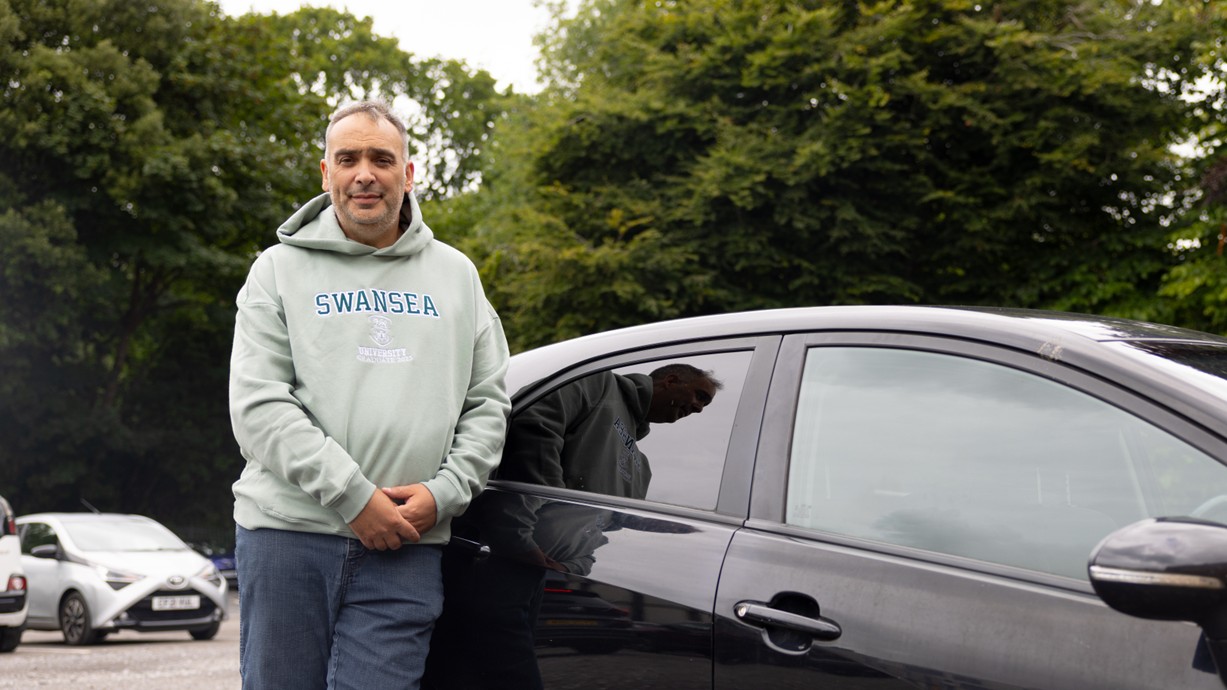
Mark's story provides a rare glimpse into hidden homelessness and the power of lived experience to drive reform.
After surviving 40 nights sleeping in the back seat of his car, one man has graduated with first-class honours from Swansea University—and now he’s using his lived experience to help transform housing policy.
In 2014, Mark Eaton-Lees, a former recruitment worker originally from Wolverhampton, left his job to pursue his dream: launching a scuba diving centre in Devon.
He found a room to rent, but when moving day arrived, his plans took a devastating detour—the room was no longer available.
With no alternative accommodation and limited savings, a hotel wasn’t an option. All that remained was his car.
“I found a free restaurant car park in Exeter, bought a pillow and a duvet, and slept in my Volkswagen Polo,” Mark said.
Embarrassed and afraid of being discovered, Mark would wake at 6 am and wouldn’t return until late in the evening.
Without access to clean clothes or facilities, applying for office jobs was impossible. Instead, Mark began searching for work as an HGV driver, hoping to sleep in the truck. But by January, his health had deteriorated.
“There was a night when I struggled to wake up, and when I did, I had huge brain fog. I’m pretty sure these were early signs of hypothermia,” he said. “It was scary, but I knew then that I couldn’t go on as I was.”
With his family’s support, Mark moved back to Wolverhampton in early 2015 and began working as a long-distance courier driver.
One day, while delivering near a cathedral, he met a young homeless man.
“He looked so cold and frightened, but he didn’t want money. All he wanted was some stability—a job and a place to live,” Mark said. “That conversation changed me. Rebuilding my own life wasn’t enough. I wanted to be part of the solution.”
Determined to gain a deeper understanding of homelessness, Mark completed a foundation course and, in 2022, began a degree in criminology and social policy at Swansea University.
“I didn’t know what social policy really was at first, but I’m glad I chose this degree,” he said. “It’s helped me explore issues like the Vagrancy Act and how homelessness is criminalised. I’ve realised how interconnected social policy and homelessness are.”
Through a lecturer’s introduction, Mark began volunteering with Shelter Cymru, and later with Llamau, Crisis, and Expert Link—supporting helplines, advising boards, and preparing meals for those in need.
He is also working with the Bevan Foundation to research the impact of temporary accommodation on children in Wales.
“Wales is leading the way with preventative approaches like Upstream Cymru, which focuses on school-based early intervention,” he said. “And, if passed, the proposed Homelessness and Social Housing Allocation (Wales) Bill could be a game-changer. There’s still a lot to be done, but it’s a promising step forward.”
Next, Mark will head to the University of Sheffield to pursue a master’s in social research, exploring the connections between autism and homelessness —an area he says remains largely overlooked.
Mark’s experience of homelessness now fuels his studies—and his determination to make sure others don’t face the same struggles.
“It might sound strange, but I’m glad I went through it. That experience shaped who I am,” Mark said. “Swansea University gave me far more than a degree. It helped me discover what drives me. Now I want to make sure others have the chance to find their own path too.”
